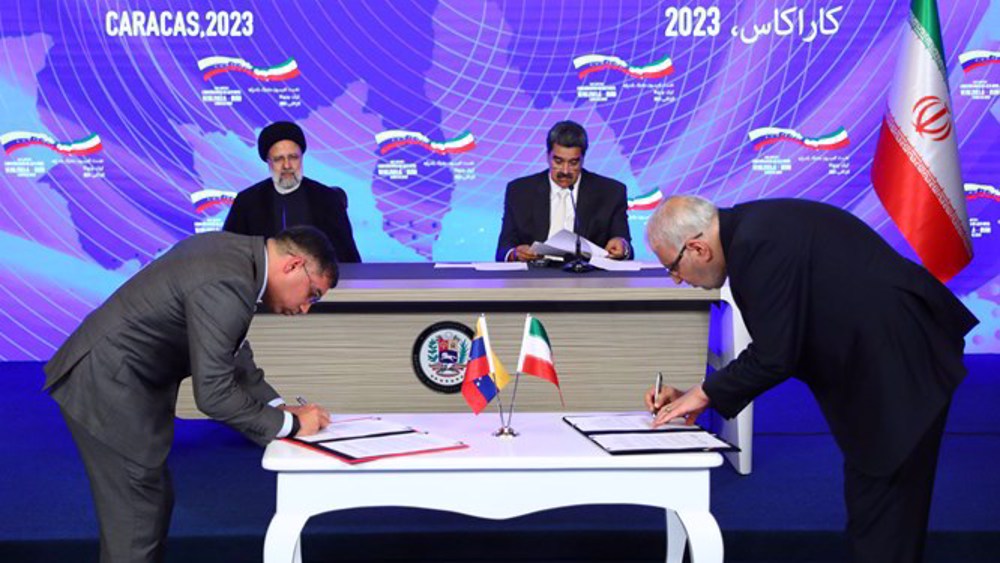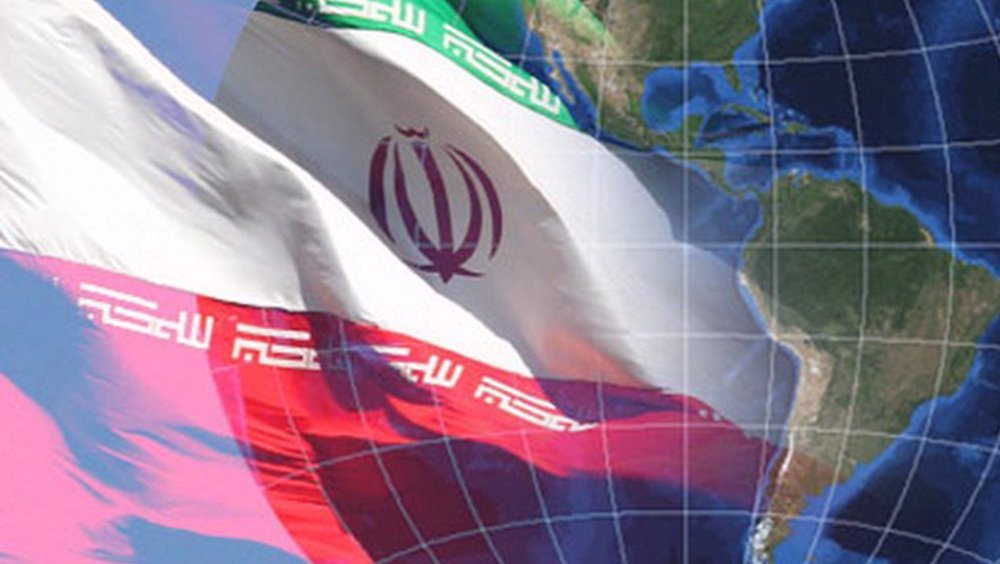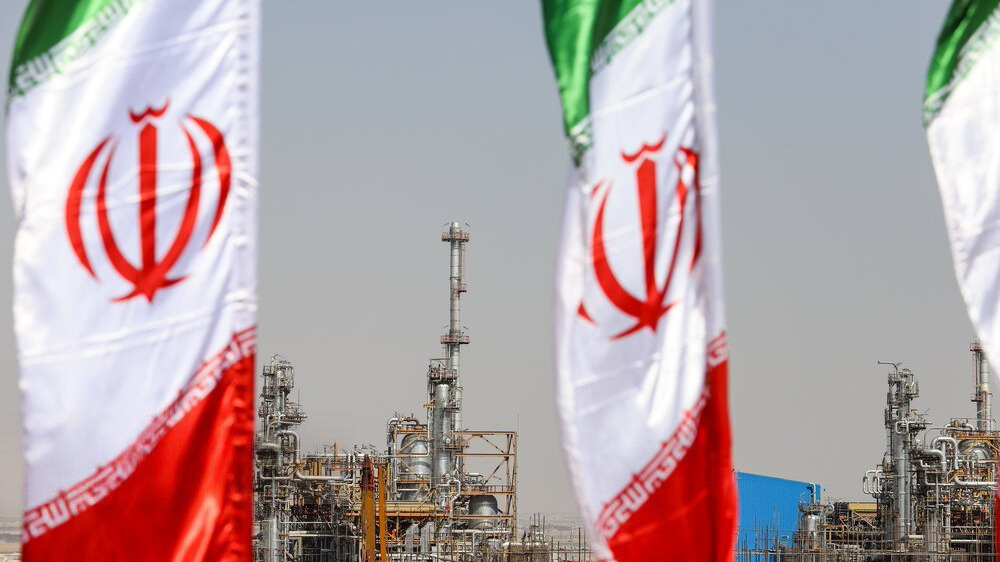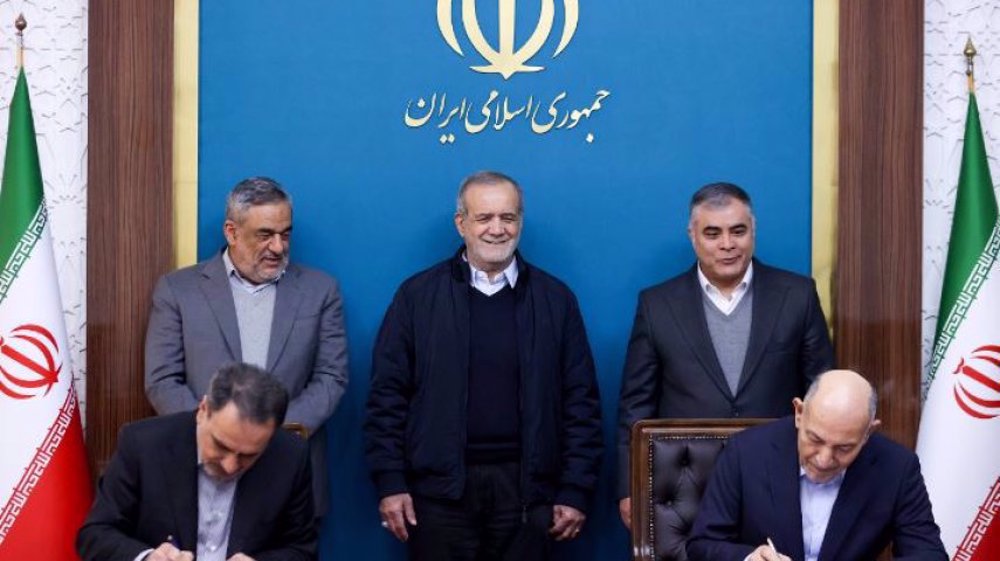Iran’s smart move for oil exports in Latin America
President Ebrahim Raeisi underlined this month the need to tap into new oil markets in Latin America where intensified energy cooperation with Venezuela has already strengthened Iran’s role in the region and boosted its oil exports.
He made the remarks as he visited three Latin American countries -- Venezuela, Cuba and Nicaragua which is only 90 miles from the US border -- to deepen Iran’s strategic and economic ties in the western hemisphere.
Iran's oil exports sank to record lows in the years after the US reimposed sanctions on Tehran in 2018. The former government believed that its sole option was to have the sanctions lifted, leaving the country and its beleaguered economy at the mercy of the West.
With the inauguration of the new government in August 2021, however, attention was shifted to the use of different methods to return Iran’s oil to the market and sell it.
Marketing and new market building for Iranian oil catapulted to the top rung of objectives, after which the traditional customers resumed imports and new clients joined the ranks of Iranian oil buyers.
According to the International Energy Agency, crude oil production rose by about 140,000 barrels per day to 2.5 million barrels per day in 2022 even thought the sanctions being in place and new restrictions had been imposed on the country.
Sales of around one million barrels per day of Iranian oil to China appear to have remained steady since the third quarter of last year. Overall oil exports, however, have risen by 350,000 barrels to about 3 million bpd since the start of the year to May and counting, the Ministry of Petroleum's Shana news agency said.
Reuters news agency, citing consultants, shipping data and a source familiar with the matter, said this month that Iran's crude exports and oil output have hit new highs in 2023 despite US sanctions.
They exceeded 1.5 million bpd in May, the highest monthly rate since 2018, according to Kpler, a provider of flows data.
Such reports do not factor Iran's exports of gas condensates - hydrocarbon liquids which are captured from the associated natural gases produced with oil.
As said before, Iranian oil sales are not limited to traditional customers such as China anymore and new markets have opened up beyond the Caribbean Sea and Latin America.
The Islamic Republic's smart move in Latin America was market building instead of marketing its oil, so as to safeguard its exports and neutralize sanctions at the same time.
Last year, Iran and Venezuela, both under US sanctions, signed a 20-year cooperation plan, pledging partnership on oil, defense and other areas.
The deal includes repairs to oil refineries in Venezuela, which has the world's largest crude reserves but has struggled to produce enough gasoline and diesel amid the sanctions.
Iran has provided fuel and diluents to convert Venezuela's extra-heavy crude into exportable varieties and since 2020 has supplied parts for repairs as well as technical and engineering services to the refining circuit.
Earlier this month, Venezuela resumed operation at the catalytic cracking unit at the El Palito refinery which is undergoing major repairs and expansion projects after a 100-million-euro deal signed with the Iranian National Company of Petroleum Refining and Distribution (NIORDC).
Iran is also involved in a modernization project at Venezuela's largest refinery complex, partly to restore distilling capacity.
Building and operating refineries abroad had been pursued long before the current administration in Iran, but nothing concrete ever emerged.
In August 2019, an official in Tehran said a trilateral preliminary agreement had been reached by Iran, China and Indonesia on building an ultra-heavy crude refinery worth $8.4 billion on Java Island off Indonesia to process 300,000 barrels of oil per day.
President Raeisi visited Indonesia last month, where he and his counterpart Joko Widodo oversaw the signing of 11 documents to strengthen cooperation in preferential trade, cancellation of visas, cultural exchanges, supervision over the pharmaceutical products, science and technology as well as oil and gas.
Raeisi said during a visit to Caracas this month that Iran and Venezuela want to increase bilateral trade to $20 billion, up from $3 billion.
The great advantage of market building for Iran's oil in Latin America is that, in addition to exporting oil without the usual discounts under sanctions, the produced oil products are also sold in the same region, which can lead to more foreign exchange income for Tehran.
Venezuela, besides holding the world’s largest oil reserves, is a major producer and exporter of minerals, notably bauxite, coal, gold and iron ore which, in President Raeisi’s words, can meet many of Iran’s needs at reasonable prices.
The president and his Venezuelan counterpart Nicolas Maduro signed 19 bilateral agreements on communications and information technology, energy, maritime transport, higher education, agriculture, medicine, cultural exchanges and mineral cooperation.
According to Iranian Foreign Minister Hossein Amir-Abdollahian, Venezuela is the gateway to Iran's business activities in Latin America and the Caribbean.
The Islamic Republic's initiatives for forging strong relations with the region include increasing trade through exporting Iranian technical and engineering goods and services.
In general, the economies of Iran and most Latin American and Caribbean countries are complementary.
During President Raeisi’s recent visit, senior officials from Nicaragua, Venezuela and Cuba formed a working group on technological cooperation to share Iran’s expertise in nanotechnology and Cuba’s expertise on biotechnology.
The trio is among a roster of “aligned” countries which the Islamic Republic has campaigned under the current administration to shore up ties with to empower one another and offset the impact of sanctions.
VIDEO | An unchecked presidency
VIDEO | Deportations strain Afghanistan’s fragile economy
‘Full-scale atrocity’: Iran security body reports 2,427 martyrs in US-Israeli-led riots
Smallest coffins are the heaviest: The three youngest victims of foreign-backed riots in Iran
Hamas warns of ‘systematic Israeli violations’ as Gaza ceasefire teeters
Israeli strikes kill 11 across Gaza, including children and journalists: Palestinian medics
US forces transferring Daesh prisoners from Syria to Iraq: CENTCOM
Press TV's news headlines











 This makes it easy to access the Press TV website
This makes it easy to access the Press TV website